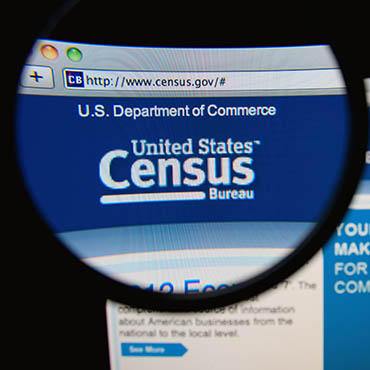Census says tech overhaul is on schedule
Watchdogs are worried the Census Bureau won't be able to successfully juggle 2020 plans and an ambitious tech overhaul.

As the 2020 census ticks closer, oversight bodies are sounding alarm bells: the Census Bureau isn't delivering promised reports, nor does it have a single cohesive timeline to track how its formidable modernization push will work with the 2020 count.
"[Census] may have bitten off a little more than it can chew," said Rep. Jason Chaffetz (R-Utah) at a June 9 hearing of the House Oversight and Government Reform Committee, which he chairs.
"Probably we have made about 50 percent of the decisions that we need to make," testified Commerce Department CIO Steve Cooper. "And in doing so we are actually on schedule."
Cooper has been representing Census tech before Congress during the bureau's 11-month search for a CIO. The newly hired Census CIO, Kevin Smith, starts work on June 13.
In the leadership flux, deadlines are going unmet.
In a November hearing before the same committee, Cooper promised to deliver a clear timeline of Census tech milestones – but it never came.
Lawmakers also noted that a data security report, due Jan. 20, never materialized.
"It turns out that even when I made that commitment, there was more detail that I was not fully exposed to yet," Cooper said of the missing timeline. "My role is an oversight role. I'm not working with these programs day to day."
On the security front, Cooper touted the "layered, in-depth set of defenses" the bureau plans to implement, including encryption of data at rest and in transit, as well as cutting Census' data repositories off from Internet access.
He promised a master timeline by the end of July, and the data security report by the end of June.
Watchdogs were still worried.
"You have a schedule to develop the schedule," said Chaffetz. "But you say you're on schedule. Did I get that right?"
Carol Cha Harris, the Government Accountability Office's director of IT acquisition management issues, acknowledged that Census has implemented many GAO recommendations and made key decisions, such as choosing a hybrid system to both build and buy Census Enterprise Data Collection and Processing (CEDCaP) components.
But end-to-end testing is slated for 2018 and many tools still need to be acquired and set up.
"The margin for error is slim," Harris warned.
CEDCaP, the bureau's centralized data collection push, is part of the problem, Harris said. The bureau wants to generate efficiencies with a single IT backbone, but by trying to put too much into the project in the next few years, it runs the risk that not all systems will be functioning by 2020.
Census Director John Thompson said that CEDCaP functionality is a major component of Census' plan to save $5 billion. But if components aren't ready to be tested by 2018, Census won't plan to use them for 2020.
Harris recommended Census slim down its planned reliance on CEDCaP systems for 2020.
"Here we are, about to do end to end testing, in a year and a half, and we've made 50 percent of the decisions," said Rep. Mark Meadows (R-N.C.) "Let me tell you, that's a disaster waiting to happen."
NEXT STORY: France Launches New Terror App





